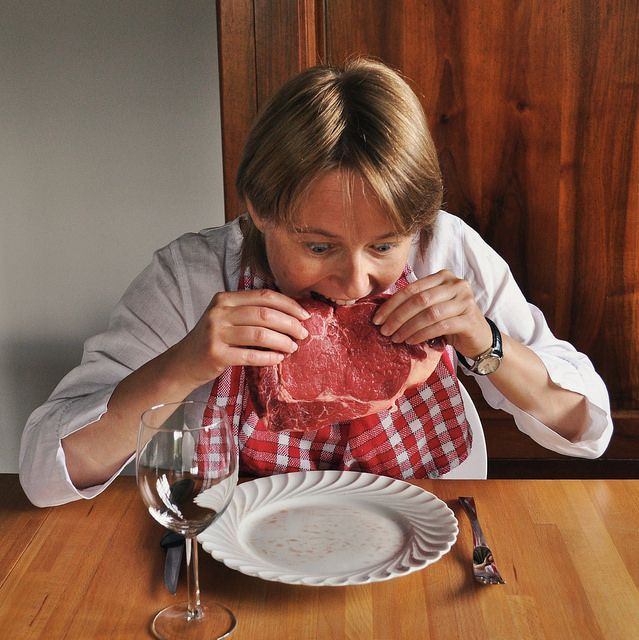Paleo Diet Leads To Rapid Weight Gain, Possible Diabetes Symptoms: Study

Those who think they've found the answer to weight loss often want to spread the word and enlighten their friends. However, a new study suggests the much-hyped Paleo diet does not pave the way to the "Kingdom of the Thin." Following the so-called "caveman" diet or any other version of a low-carbohydrate, high-fat food plan for just eight weeks may lead to rapid weight gain and health complications, University of Melbourne researchers say.
Paleo dieters base their particular food religion “upon the fundamental concept that the optimal diet is the one to which we are genetically adapted.” Following a low-carb, high-fat food plan, they allow themselves meat (grass-produced), fish and seafood, fresh fruits and veggies, eggs, nuts and seeds, and healthful oils (including olive, walnut, flaxseed, and avocado). The list of what modern day cavemen don't consume includes potatoes, grains, legumes (including peanuts), refined sugar, salt, processed food, or refined vegetable oils. Did we say potatoes? No potatoes for Paleos.
According to one prominent Paleo website, following this simple food plan may help you lose weight if you are overweight while also reducing your risk of heart disease, Type 2 diabetes, and most “chronic degenerative diseases that affect people in the western world.” The Caveman Diet, they suggest, will also improve your athletic performance, your sleep satisfaction, and most importantly your sexual prowess. Hey, who doesn't want all that?
Enter a team of skeptical scientists led by Dr. Sof Andrikopoulos, an associate professor and president of the Australian Diabetes Society. What they discovered may not please the cavemen. Don't say we didn't warn you.
Biggest Loser, For Mice
Andrikopoulos and his colleagues designed a simple experiment: They took two groups of overweight mice with pre-diabetes symptoms and put one group on a low-carb/high-fat diet, while the other group continued to eat their normal diet. The Paleo mice, then, essentially increased their fats from just 3 percent to 60 percent, while their carbs dipped to just 20 percent.
After just eight weeks, the mice who ate caveman-style gained weight, their glucose intolerance worsened, and their insulin levels increased. All told, the mice in the paleo group gained 15 percent of their body weight.
This is equivalent, Andrikopoulos says, to a 220-pound person increasing his weight by 33 pounds in just shy of two months, an extreme weight gain by most standards.
Based on the results, Andrikopoulos and his colleagues do not recommend the Paleo diet for anyone, particularly people who are already overweight and leading sedentary lifestyles as it might pre-dispose them to diabetes. Instead, they suggest dieters go Mediterranean and follow the science-backed plan proven to be helpful to people who are pre-diabetic.
Source: Lamont BJ, Waters MF, Andrikopoulos S. A low-carbohydrate high-fat diet increases weight gain and does not improve glucose tolerance, insulin secretion or β-cell mass in NZO mice. Nutrition & Diabetes. 2016.



























